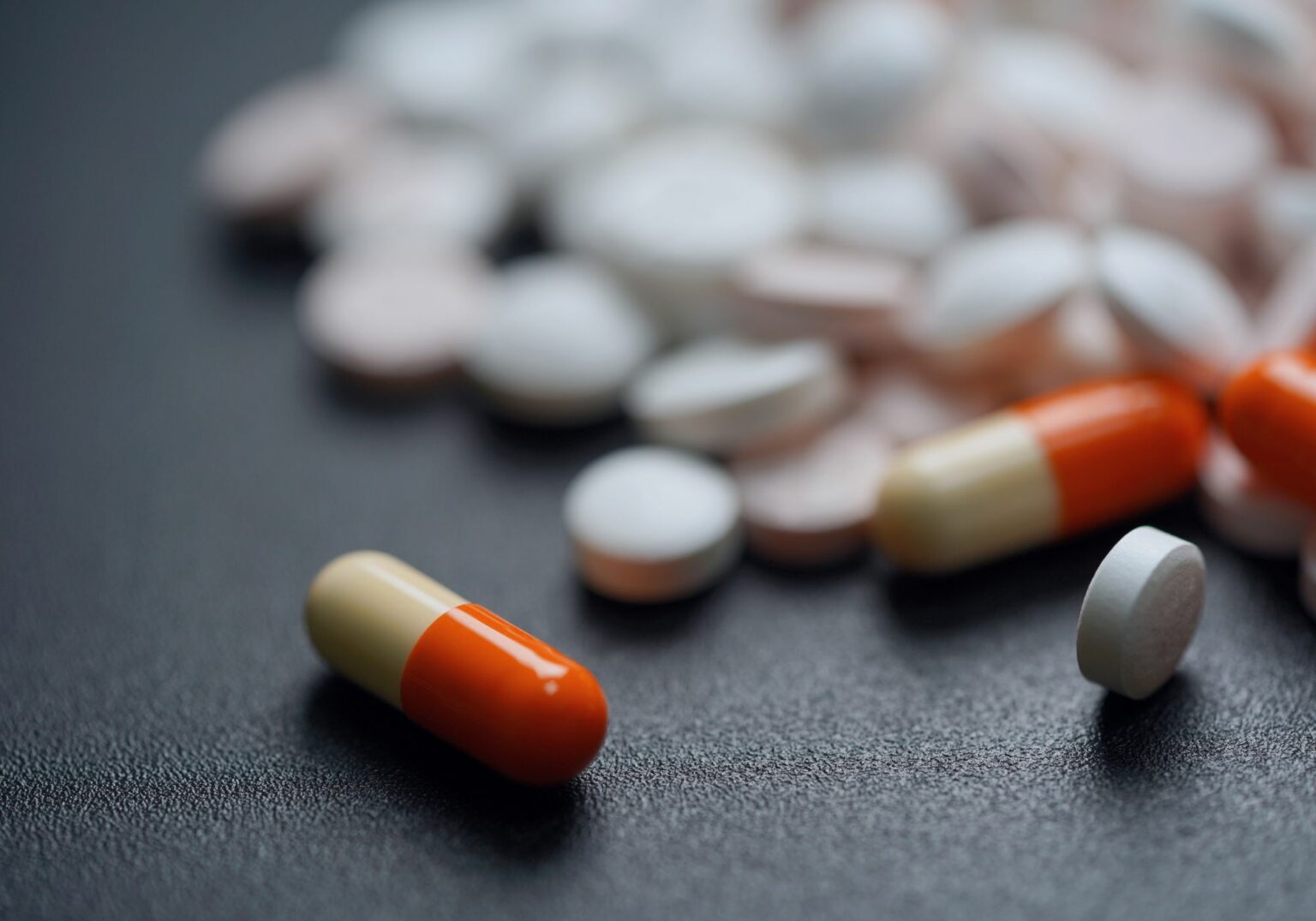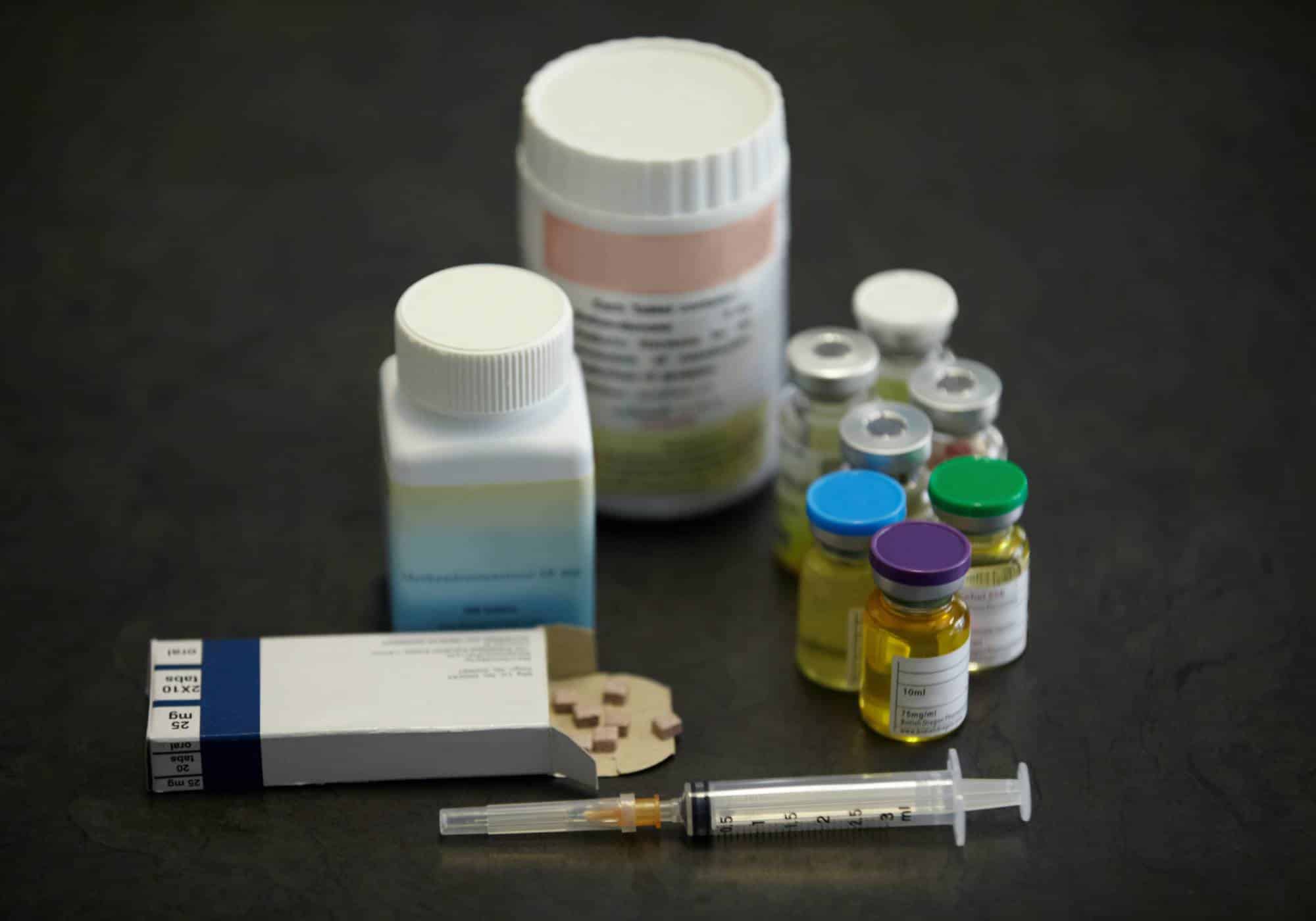Adderall, a combination of amphetamine and dextroamphetamine salts, is a potentially addictive medication classified as a Schedule II controlled substance. It’s primarily prescribed to manage symptoms of attention-deficit/hyperactivity disorder (ADHD). However, its potential for misuse and abuse raises significant concerns.
The risk with Adderall arises especially when it’s used by individuals without ADHD or taken without a prescription. In such cases, it can produce a euphoric high. This effect is due to the release of excessive dopamine and other neurotransmitters in the central nervous system, which can lead to addiction and physical dependence. The longer Adderall is misused, the greater the likelihood of developing a dependence. Consequently, discontinuing Adderall after prolonged misuse can result in Adderall withdrawal symptoms, highlighting the need for cautious and appropriate use of this medication.
What is Adderall Withdrawal?
Physical dependence on Adderall means your body has adapted to its presence and relies on it for normal functioning. If you suddenly reduce or stop taking Adderall, you’re likely to experience withdrawal symptoms.
Withdrawal from Adderall can happen to anyone who has become dependent on this central nervous system (CNS) stimulant, whether they’ve been using it as prescribed or misusing it. Prolonged use, even according to prescription guidelines, can lead to physiological dependence. Misuse of Adderall further increases the risk of Adderall addiction and withdrawal symptoms upon cessation.
An abrupt discontinuation of Adderall can trigger an ‘Adderall crash’, a short but intense period of withdrawal symptoms. This crash usually starts within hours of the last dose and can last for a couple of days. It’s characterized by both physical and mental fatigue and a noticeable drop in mood.
Extended use of high doses of Adderall can lead to physical dependence. Over time, tolerance develops, necessitating larger or more frequent doses to achieve the same effects. Those with a tolerance may find that Adderall no longer improves concentration or energy as it once did. Stopping the drug in such cases can lead to difficulties in thinking or functioning normally.
These symptoms mark the beginning stages of withdrawal, which typically affects those who have taken frequent high doses over a long period. Adderall withdrawal involves the body adjusting to function without the medication. While it’s rarely dangerous, it can induce suicidal thoughts in some individuals, underscoring the need for careful management and support during withdrawal.
Adderall Withdrawal Symptoms
Adderall withdrawal can manifest through a variety of symptoms, affecting both mental and physical well-being. Common Adderall withdrawal symptoms include:
- Depression
- Agitation
- Fatigue
- Vivid, unpleasant dreams
- Changes in sleep patterns
- Increased appetite
- Slowed thinking
- Physical discomforts
In more severe cases, particularly for those who have taken high doses of Adderall, the withdrawal process can involve more serious symptoms such as:
- Psychosis
- Paranoia
- Disordered thinking
- Hallucinations
It’s important to be aware of these potential symptoms, as they highlight the complexities involved in withdrawing from Adderall, especially for those who have used the drug in high doses. If you or a loved are struggling with Adderall addiction, Contact us today to begin the journey to recovery at our adderall addiction treatment center.

Adderall Withdrawal Timeline
Each journey through Adderall withdrawal is unique, but there’s a general timeline that many people in recovery experience. Understanding this timeline, especially in a detox program setting like Jacksonville, FL, can help make the process less daunting and more manageable.
First Day of Withdrawal
Withdrawal symptoms typically begin within six hours after the last dose of Adderall as its effects start to fade. Within 24 hours, as the drug leaves the system, symptoms like anxiety and fatigue usually set in.
Days 2-4 of Treatment
The peak of withdrawal symptoms often occurs within the first 72 hours. During this period, individuals may experience intense anxiety, depression, and feelings of hopelessness. Increased fatigue is common, yet sleep may be disrupted by nightmares. Those detoxing from heavy or long-term use might also encounter hallucinations and paranoia.
One Week Into Treatment
By this stage, the most challenging part of physical withdrawal typically subsides. However, mood swings and other psychological issues may persist. It’s common for individuals to experience social withdrawal as the brain gradually adjusts back to its normal functioning.
Beyond the First Week
After the initial week, the focus in treatment programs shifts more towards therapy and relapse prevention, as the physical withdrawal symptoms largely subside. However, some may continue to feel withdrawal effects for weeks, particularly those with a history of severe or prolonged use, existing mental health conditions, or other chronic health issues requiring additional medical attention.
How Long Does Adderall Withdrawal Last?
When you stop using Adderall, the initial acute withdrawal phase typically lasts up to five days. Following this, you may experience a protracted withdrawal phase that can extend for weeks or even months. During this extended phase, the withdrawal symptoms are predominantly psychological in nature.
How to Prevent Adderall Withdrawal
To prevent Adderall withdrawal, it’s essential to focus on reducing dependency risks and smoothly transitioning off the medication. Here are some proactive steps:
- Adhere to Prescribed Guidelines: Always follow the dosage and schedule set by your healthcare provider. Avoid changing the dose or frequency without medical advice.
- Maintain Open Communication: Keep a transparent dialogue with your healthcare provider about your experience with Adderall, including its effectiveness and any side effects.
- Schedule Regular Check-ins: Regular appointments with your healthcare provider are crucial for monitoring progress and adjusting your treatment plan as necessary.
- Avoid Misuse: Using Adderall in higher doses than prescribed, without a prescription, or for non-medical reasons, increases the risk of dependency and withdrawal. Use the medication only as directed.
- Consider Medication Breaks: Discuss the possibility of taking occasional breaks from Adderall with your healthcare provider, especially if it’s prescribed for ADHD, to help prevent tolerance and dependency.
- Adopt a Healthy Lifestyle: Engaging in regular exercise, maintaining a balanced diet, and getting enough sleep can support your overall well-being and mental health.
- Incorporate Holistic Practices: Techniques like stress management, mindfulness, and relaxation exercises can improve your ability to manage ADHD symptoms and lessen reliance on medication.
- Pursue Therapeutic Approaches: Psychotherapy or counseling can be beneficial. They provide skills for coping, time management, and organization, which can help manage ADHD symptoms beyond medication.
- Regular Evaluations: Periodically reassess your progress with your healthcare provider to ensure your treatment remains aligned with your needs.
- Stay Informed: Being knowledgeable about Adderall’s risks and benefits empowers you to make informed decisions about your treatment.
If you suspect dependence on Adderall, seeking immediate intervention is crucial. An Adderall detox center can greatly assist in reducing withdrawal symptoms and provide ongoing support and tools for sustained recovery if addiction is present.
Signs of Adderall Overdose
Emergency hospital visits due to stimulant overdoses, including Adderall, have risen across all demographics. Risky practices like snorting Adderall or combining it with other substances heighten the risk of overdose. An overdose can result from consuming too much Adderall in one instance or from a gradual accumulation in the body due to prolonged or excessive use. While an overdose doesn’t always lead to death, it is a serious risk.
Signs that someone may be experiencing an Adderall overdose include:
- Chest pains
- Rapid heartbeat and increased breathing rate
- Severe tremors or uncontrollable shaking
- Nausea and vomiting
- Dizziness or fainting
- Loss of consciousness
- Stroke
In extreme cases, convulsions and coma may precede death, and cardiac arrest is a possibility due to elevated blood pressure and heart rate. While there is no specific antidote for a stimulant overdose, immediate medical attention is vital.
Preventing an Adderall overdose involves using the drug strictly under medical supervision and adhering to prescribed dosages. Parents concerned about their children’s use of Adderall for attention deficit disorders might also explore alternative treatments, such as nutritional programs and behavior modification therapies.
Adderall Detox
Detoxification is the process of removing Adderall from the body, which marks the beginning of withdrawal symptoms. These symptoms can challenge daily functioning and increase the risk of relapse, making support during detox crucial for some individuals.
A common approach in Adderall detox is the tapering method, where the dosage is gradually reduced over time. This strategy helps in minimizing the withdrawal symptoms. Addiction specialists, particularly in inpatient rehab settings, can provide the necessary guidance to safely reduce Adderall doses.
Some individuals opt to stop using Adderall abruptly, known as quitting ‘cold turkey’. Successful withdrawal in this manner often occurs in a rehab facility or with the assistance of a counselor, which can significantly help in preventing relapse.
Is Adderall Withdrawal Dangerous?
Withdrawal from Adderall can be quite hazardous, particularly if it involves severe psychological symptoms such as psychosis or hallucinations. These intense psychological changes can cause a person to lose touch with reality, posing a significant risk to themselves and others. Experiencing psychosis during withdrawal can lead to unpredictable behavior, making it unsafe for the individual and those around them. Therefore, it is highly advisable to undergo Adderall withdrawal under medical supervision. In a controlled environment, healthcare professionals can closely monitor symptoms, ensuring immediate and appropriate treatment, thereby significantly reducing the risks associated with withdrawal.
Can You Die from Adderall Withdrawal?
Death from Adderall withdrawal is a rare but serious concern, particularly due to the potential for severe psychological effects like psychosis. In such states, individuals may become a danger to themselves or others. The risk arises not directly from the withdrawal itself but from the dangerous behaviors that might result from altered mental states, such as self-harm or accidents. In extreme cases, these behaviors could be life-threatening. Therefore, managing withdrawal under professional care is crucial to ensure safety and address any critical symptoms effectively.
Stopping Adderall Cold Turkey
Ceasing Adderall use abruptly, or ‘cold turkey’, is generally discouraged, especially for those physically dependent on the medication. When your body is accustomed to the presence of Adderall, suddenly stopping its intake can trigger a range of withdrawal symptoms, some of which can be quite severe. Symptoms might include intense cravings, mood swings, depression, or even physical illness, making it difficult to cope without proper support. Gradually tapering off the drug under medical guidance is often the safer approach, as it allows the body to adjust more gently to the absence of the medication, reducing the intensity and risk of withdrawal symptoms.

Adderall Withdrawal Treatment at Hope Harbor Wellness
Located in the serene suburbs of Atlanta, Hope Harbor Wellness is your ally in the fight against Adderall addiction in Atlanta. Our adderall drug rehab centers, dedicated to holistic recovery, are ideally situated to offer you the support you need.
Our compassionate Adderall outpatient program collaborates with top-tier medical Adderall detox facilities, ensuring a safe and effective detox process. Once free from addictive substances, you can seamlessly transition into one of our specialized outpatient treatment programs at Hope Harbor Wellness, designed to address substance use disorders:
- Outpatient Rehab: A flexible program tailored to fit into your daily life.
- PHP (Partial Hospitalization Program): Offers a structured yet non-residential approach to treatment.
- IOP (Intensive Outpatient Program): Provides more intensive care while allowing you to maintain daily responsibilities.
- Dual Diagnosis Treatment Program: Caters to those with co-occurring mental health disorders.
Our Adderall treatment programs incorporate a variety of interventions:
- MAT (Medication-Assisted Treatment): Utilizes medications to ease withdrawal symptoms and cravings.
- Psychotherapy: Addresses underlying psychological aspects of addiction.
- Group Therapy: Offers peer support and shared learning experiences.
- Individual Counseling: Provides personalized guidance and support.
- Family Therapy: Helps heal and strengthen family relationships.
- Holistic Therapies: Focuses on overall well-being, including physical, emotional, and spiritual health.
- Aftercare: Ensures ongoing support post-treatment.
Embark on your journey from addiction to recovery with Hope Harbor Wellness. Trust in our dedicated team to guide you every step of the way. For more information or to start your journey, call our admissions team at 678-929-6304.












